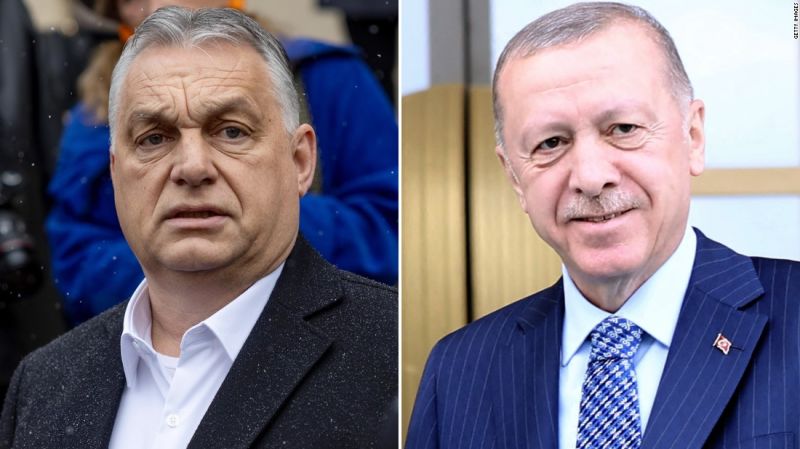
By Susan Crabtree for RealClearPolitics
The Secret Service is providing Kimberly Cheatle, its former director who resigned last month, a security detail in an unprecedented effort to protect a former agency chief amid lingering national anger about the myriad security lapses under her watch that led to the assassination attempt against former President Donald Trump and the killing of firefighter Corey Comperatore, according to three sources in the Secret Service community.
Cheatle has faced an ongoing firestorm of fury from Americans citizens, and even rank-and-file Secret Service special agents and officers, over the agency’s failures that created an opening for shooter Thomas Crooks to open fire on Trump, piercing his ear and killing Comperatore in front of his family and wounding two other rally-goers.
RELATED: Impeachment Report Lays Out President Biden’s Alleged Offenses
At least for now, the Service Service is providing the protection out of the Dignitary Protective Division, which secures foreign leaders when they visit the White House and other areas in D.C. and also protects lower-profile cabinet officials, according to these sources. Using DPD, instead of the Washington Field Office, could be a way to keep the knowledge of Cheatle’s protection to a more limited number of agents or it could simply be a manpower issue.
President Biden ordered the taxpayer-funded protection for Cheatle, these sources say, because she was facing numerous threats, especially on social media from individuals angered by the agency’s failures on July 13 and her lack of transparency during her testimony to the House Oversight Committee July 22.
The Bidens are close to Cheatle from her time protecting Biden on the vice presidential detail. First lady Jill Biden helped select her for the director role in 2022, the New York Post first reported and sources in the Secret Service community confirmed to RCP.
The Secret Service declined to comment on the matter.
“We do not comment on former Secret Service employees or matters or protective intelligence,” Secret Service spokesman Anthony Guglielmi said in a statement to RealClearPolitics.
In the wake of the near-miss assassination attempt against Trump at the rally in Butler, Pennsylvania, last month, Cheatle has faced fierce criticism from lawmakers on both sides of the aisle, as well online memes ridiculing her leadership and even death threats on social media. Threatening individuals have also approached her, knowledgeable sources tell RCP.
The Secret Service on Friday wouldn’t indicate how serious those death threats against Cheatle are, but the agency is standing by its decision, the first time in the agency’s history that it has used its own taxpayer-funded resources to protect a former leader, according to the sources in the Secret Service community who confirmed the protection to RealClearPolitics.
RELATED: Numbers Don’t Lie: Women Thrived Under Trump, Suffered Under Harris
The move comes after the agency faced criticism, even before the assassination attempt against Trump, for repeatedly denying requests for more security assets to the former president’s Secret Service protective detail over the course of two years.
The agency for nearly a year also denied Secret Service protection to Robert F. Kennedy Jr., who is running for president as an independent. The Kennedy family is painfully aware of the vulnerabilities presidents and presidential candidates face from would-be assailants and attackers. Kennedy Jr.’s father, Robert F. Kennedy, and his uncle, President John F. Kennedy, were assassinated in the 1960s.
President Biden only directed the Secret Service to protect RFK Jr. two days after the attempted assassination of Trump at the Butler rally.
“In light of this weekend’s events, the president has directed me to work with the Secret Service to provide protection to Robert Kennedy Jr.,” Department of Homeland Security Secretary Alejandro Mayorkas announced July 15 during a White House press briefing.
Even though Kennedy’s presidential ambitions are a long shot, he is still trying to appear on ballots across the country and enjoys strong support among some Americans, with his campaign drawing large crowds and media attention.
Kennedy publicly assailed Biden for rejecting at least three requests for Secret Service security and accused him of playing politics with protection. He argued that the decision to deny him Secret Service protection was political because he was paying $200,000 to $500,000 a month for private security, draining his campaign resources. In a December letter to Kennedy, Mayorkas said the protection “is not warranted at this time,” despite several death threats Kennedy claimed were made against him.
RELATED: Illegal Border Crossings Surpass 12.5 Million Since Biden-Harris Took Office
In late October, a man was arrested for trespassing at Kennedy’s home twice in the same day. RFK Jr.’s request for Secret Service protection included a 67-page report from a leading protection firm detailing “unique and well-established security and safety risks aside from commonplace death threats,” the candidate said in a post on X.com last summer.
Kennedy’s attorney, Aaron Siri, in March called the department’s denials “capricious, an abuse of discretion, and clearly politically motivated,” in a letter sent to Mayorkas and posted on X.com.
The Biden administration also declined for nearly a year to provide Secret Service security protection for Robert O’Brien, a former national security adviser in the Trump White House, despite behind-the-scenes pressure of lawmakers and a stepped-up threat from Iran. It’s unclear if Biden has requested a Secret Service security detail for O’Brien due to the threats from Iran in the wake of the assassination attempt against Trump.
One day before the Butler rally, The FBI arrested Asif Merchant, a Pakistani man with ties to Iran. The FBI charged Merchant with an elaborate plot to assassinate former government officials, including Trump. O’Brien, like Trump’s former Secretary of State Mike Pompeo, had Secret Service protection in the past, but that detail was dropped last summer, the Wall Street Journal reported. O’Brien was reportedly paying for his own private security detail despite the push from Republican lawmakers on the House Intelligence Committee, including its chairman, Rep. Mike Turner of Ohio, to press the agency to provide taxpayer-funded security.
Turner even met with national security adviser Jake Sullivan to press for protection for O’Brien, but those efforts failed to convince Biden to provide the security until after Trump was nearly assassinated, and the Secret Service claimed to have stepped up security assets for Trump prior to the Butler rally in response to the Iranian threat.
RELATED: Tim Walz’s Radical Education Record
“It’s a dangerous precedent to set, to not extend a former National Security adviser’s protective detail while there are active threats against his life, especially in a growing threat environment,” Turner wrote in a letter to the Biden administration Jan. 30. “Ambassador O’Brien both needs and deserves a protective detail for his service to this country.”
A previous letter from Turner was dated June 21, 2023.
Sources within the Secret Service community also question whether Cheatle remains on the payroll of the Department of Homeland Security despite her resignation. The agency has a history of quietly allowing top officials to remain on the taxpayer-funded payroll – even when they resign in the wake of major security lapses and amid a public firestorm.
Guglielmi told RCP that Cheatle was no longer employed by the U.S. government or on the regular payroll. As any federal and even most private employees who leave their jobs, Cheatle would still be entitled to any leave balance for vacation time accrued consistent with federal employee rules.
Alvin, or “A.T.” Smith, a Secret Service agent who stepped down as deputy director in February 2015 after a string of White House security fence-jumping incidents and other lapses, was still on the agency’s payroll several months later and was serving as then-Director Joseph Clancy’s chief of staff, according to screen shots obtained by the Washington Post at the time.
Clancy had testified to the House Oversight and Government Reform Committee that he had not spoken to Smith since his resignation just days before the Washington Post story was published.
“You have done a very good job of building trust and confidence, but it’s flushed down the toilet when I read and I hear about these things,” said then-Rep. Jason Chaffetz, who chaired the Oversight Committee before leaving Congress. “Don’t ever come back here to Congress and tell me you have a financial problem when you’ve got A.T. Smith on your payroll, and you say you don’t have enough money.”
Clancy insisted that Smith wasn’t still employed by the Secret service, arguing that he had been “detailed” to the Department of Homeland Security for Customs and Border Protection work.
But Clancy recanted those statements under questioning from Chaffetz, admitting that Smith was still on the Secret Service payroll drawing his $183,000 salary. The Washington Post also reported that a different and unnamed high-level agent whom Clancy previously said was forced to resign, was also still on the agency payroll, though he was detailed to Immigration and Customs Enforcement.
RELATED: ‘We do not support her:’ California Sheriff Pushes Back on Harris Border Claims
Secret Service Director Randolph “Tex” Alles, a retired Marine Corps major general Trump appointed in 2017, resigned two years later in April 2019 amid a shakeup of the Department of Homeland Security leadership team. DHS Secretary Kirstjen Nielsen resigned a few days before Alles.
Trump decided to seek Alles’ resignation after an incident in which a Chinese woman was arrested at Mar-a-Lago without an invitation, setting off security concerns. The woman, Yujing Zhang, was carrying a thumb drive containing malicious software.
Just three months later, Alles became the deputy DHS undersecretary for management and oversight for all support functions, including Information Technology, budget and financial management, procurement, and asset management, according to a current Alles bio listed on the agency’s website.
The agency also tried to conceal details of Special Agent Kerry O’Grady’s financial arrangement with the Secret Service after she wrote on her Facebook page in October 2016 that she didn’t want to take a bullet for Trump and was endorsing Hillary Clinton. O’Grady was the head of the Secret Service’s Denver Field Office at the time.
The Secret Service leadership only removed O’Grady from her position and investigated her for possible misconduct after this reporter broke a story in January of 2017 about her aversion to protecting Trump.
O’Grady contested the disciplinary measures taken against her and settled her case with the Department of Homeland Security in October 2017. Yet, she remained on either paid or unpaid leavefrom the agency until 2019, in what sources in the Secret Service community asserted was a guise to allow her to extend her service at the agency to meet requirements to receive her full taxpayer-funded pension without any penalties.
The Secret Service currently protects 36 individuals, including President Biden, Vice President Kamala Harris, former President Trump, vice presidential candidate J.D. Vance, and their families, as well as former presidents and their families, several top Biden officials, and world leaders who visit the United States.
RELATED: Polls: Majority of Americans Want Troops Sent to Border, Oppose Illegal Immigration
The Secret Service has long complained of being stretched too thin, and agents have grumbled about directives to do “more with less,” though the agency’s budget in real numbers grew 55% over the last decade to $3.62 billion, which includes supplemental appropriations requests it has received over the last fiscal year to help meet increased protective demands for the 2024 campaign year.
On Wednesday, Acting Secret Service Director Ron Rowe pledged to jettison the mantra of doing “more with less” while pressing for a complete “paradigm shift” overall and advocating for major budget increases. He also promised to increase hiring and provide better training, as well as to embrace new technologies to prevent the communications breakdown between local law enforcement and the secret Service at the Butler rally.
“We can no longer operate with that mindset. We can no longer wear our people down,” he told every Secret Service employee in an all-hands conference call Wednesday. “We have to win the day every day … we have to be in a state of readiness to be able to meet that environment.”
Syndicated with permission from RealClearWire.

























































